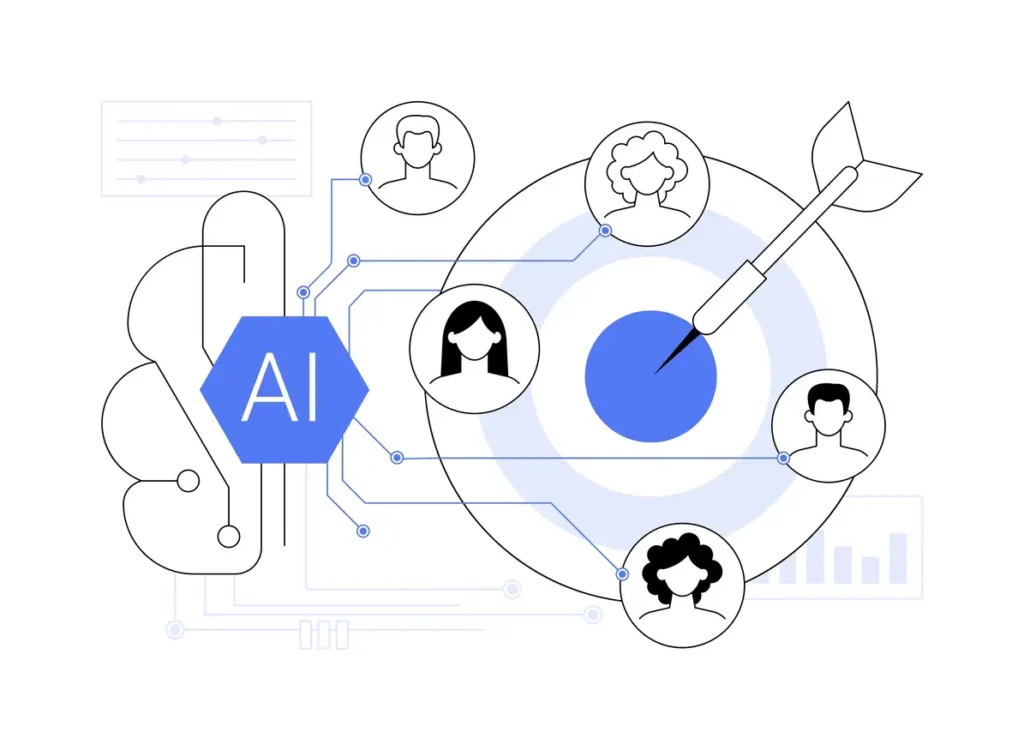The Future of B2B: Taking Advantage Of AI Automation to Drive Success
The landscape of B2B is moving as companies significantly transform to AI automation for tactical advantage. This makeover assures to improve efficiency and consumer interaction through advanced technologies. The combination of these devices is not without its difficulties. Recognizing exactly how companies can browse this evolving terrain will be crucial for future success. What elements will determine the efficiency of AI in this industry? The responses might redefine standard business designs.
Understanding AI Automation in B2B
As services increasingly look for performance, comprehending AI automation in B2B comes to be important. Growth Systems For B2B. AI automation refers to using artificial knowledge modern technologies to improve and boost organization processes. In the B2B industry, this entails the assimilation of AI tools to handle jobs such as information analysis, client communications, and supply chain procedures. By leveraging machine discovering and all-natural language handling, companies can improve accuracy, minimize human mistake, and speed up decision-making. AI automation facilitates the handling of large volumes of data, allowing services to draw out beneficial understandings and maximize their procedures. As companies browse this technical landscape, a detailed understanding of AI automation's capabilities will empower them to remain receptive and affordable to market needs
Key Advantages of AI Automation for Companies
While several organizations face increasing functional needs, AI automation provides many advantages that can markedly boost their efficiency. One considerable advantage is efficiency; AI systems can carry out repeated jobs quicker and with higher accuracy than humans, thereby decreasing errors and freeing up staff members for even more critical campaigns. Additionally, AI automation enables data-driven decision-making by analyzing large datasets rapidly, offering insights that educate organization methods. Expense reduction is another key advantage, as automation lessens labor costs and maximizes source allotment. AI can boost scalability, enabling businesses to adapt to market modifications swiftly. Eventually, the integration of AI automation cultivates development, making it possible for business to remain affordable in a rapidly progressing landscape.
Transforming Client Experiences With AI
AI is improving client experiences by improving and enabling tailored interactions engagement. Via the application of anticipating analytics, businesses can prepare for consumer requirements and choices, causing more customized services. In addition, streamlining support processes with AI innovation improves effectiveness and contentment, ultimately transforming the general customer trip.
Customized Communications and Engagement

Predictive Analytics Implementation
As companies significantly look for to enhance customer experiences, implementing anticipating analytics has actually become a critical method in the B2B field. By leveraging data-driven understandings, organizations can prepare for consumer needs and choices, allowing them to customize their offerings better. Anticipating analytics utilizes historical data and innovative algorithms to forecast future actions, permitting organizations to recognize prospective challenges and chances. This proactive method not just improves customer complete satisfaction but additionally promotes commitment by providing prompt and appropriate options. Additionally, anticipating analytics aids in source allotment, guaranteeing that marketing initiatives are focused on high-value leads. Eventually, the assimilation of predictive analytics gears up B2B firms with the devices needed to transform client communications and drive long-lasting success in an increasingly competitive landscape.
Enhancing Support Processes
Enhancing client experiences in the B2B market expands beyond predictive analytics; simplifying support procedures plays an important function. By incorporating AI-driven options, organizations can automate regular questions and improve reaction times, resulting in heightened client fulfillment. Chatbots and digital aides give 24/7 assistance, resolving customer needs promptly and decreasing the burden on human agents. This automation allows teams to concentrate on intricate problems, cultivating even more significant communications. AI tools can examine support data to determine patterns and locations for enhancement, ensuring continuous improvement of solution high quality. As organizations embrace these innovations, they place themselves as customer-centric and responsive, eventually driving commitment and service development in a significantly competitive landscape
Simplifying Operations and Processes
Improving operations and processes in B2B atmospheres is necessary for boosting general efficiency. By optimizing workflow effectiveness and automating regular jobs, companies can reduce manual errors and totally free up valuable resources. This shift not just enhances performance yet additionally enables teams to focus on tactical initiatives that drive growth.
Enhancing Process Performance
Optimizing workflow efficiency is necessary for organizations looking for to lower operational expenses and enhance productivity. By analyzing existing processes, organizations can determine bottlenecks and redundancies that impede efficiency. Executing streamlined procedures improves communication and partnership among groups, making sure that tasks are finished a lot more swiftly. Making use of data-driven insights enables business to make informed choices that refine procedures even more. In addition, embracing incorporated innovations can facilitate smooth information flow, minimizing the danger of mistakes and delays. As businesses welcome these changes, they not just cultivate a much more dexterous workplace but likewise place themselves to respond swiftly to market needs. Eventually, concentrating on workflow effectiveness permits organizations to designate sources efficiently, driving long-lasting success in a significantly competitive landscape.
Automating Regular Jobs
Many organizations are significantly turning to automation to deal with regular jobs, identifying its potential to considerably boost functional efficiency. By deploying AI-driven options, firms can streamline recurring tasks such as information access, invoice handling, and consumer inquiries. This shift not just lowers human mistake however likewise releases up beneficial employee time, allowing staff to focus on value-added jobs and strategic initiatives. Additionally, automation can improve reaction times and service consistency, resulting in improved client contentment. As businesses browse a competitive landscape, leveraging automation for regular jobs comes to be essential for optimizing workflows and maintaining dexterity. Ultimately, this approach fosters innovation and drives growth, placing organizations for lasting success in the evolving B2B environment.
Enhancing Decision-Making Through Data Insights
As organizations browse an increasingly complicated landscape, leveraging data insights becomes important for informed decision-making. Minarik AI. By using ai-driven tools and innovative analytics, organizations can transform raw information right into workable knowledge. This allows them to identify trends, forecast market modifications, and maximize approaches based upon real-time information. Enhanced decision-making processes rely upon information visualization methods, permitting stakeholders to conveniently make and interpret complicated datasets swift, evidence-based options. Furthermore, insights stemmed from client habits and market dynamics equip business to tailor their offerings, improving customer complete satisfaction and driving development. Eventually, harnessing information understandings not just enhances decision-making efficacy yet also placements organizations to continue to be affordable in a swiftly advancing industry
Getting Rid Of Difficulties in AI Application
Although AI application holds the pledge of considerable operational improvements, organizations often face a myriad of challenges that can impede progress. Secret obstacles include information quality problems, as several business deal with insufficient or irregular datasets essential for efficient AI training. In addition, resistance to transform within the workforce can restrain the fostering of AI innovations, as workers may fear work variation or lack the essential abilities. Spending plan restraints additionally offer an obstacle, limiting investment in the required framework and ability. Moreover, incorporating AI systems with existing processes can be intricate, requiring considerable time and resources. Overcoming these obstacles requires a strategic strategy that includes complete training, change management, and a dedication to constant renovation in AI campaigns
Future Trends: The Following Frontier in B2B Automation
While the landscape of B2B automation remains to progress, arising patterns are positioned to redefine just how organizations run. The integration of innovative artificial Minarik AI intelligence will certainly facilitate extra tailored customer experiences, enabling companies to tailor solutions specifically to customer requirements. In addition, the increase of anticipating analytics will allow organizations to expect market shifts and enhance decision-making procedures. Automation of routine tasks with robot process automation (RPA) will improve effectiveness, lowering functional costs significantly. Furthermore, the adoption of blockchain technology assures boosted transparency and security in transactions. As these developments gain traction, business will progressively take advantage of AI-driven insights to promote partnership, simplify supply chains, and boost overall productivity, marking a transformative shift in the B2B landscape.
Frequently Asked Concerns
What Kinds Of Companies Can Benefit Many From AI Automation?

How Can Local Business Execute AI Automation Efficiently?
Small businesses can apply AI automation successfully by determining repetitive jobs, selecting user-friendly devices, making sure appropriate training for employees, and progressively integrating solutions to maximize process while keeping an eye on performance and readjusting techniques based upon comments.
What Are Common Misconceptions Regarding AI in B2B?
Common misconceptions about AI in B2B include the idea that it is only for huge enterprises, that it assures instant results, and that it can totally replace human decision-making instead of boosting it.
How Does AI Automation Influence Employee Duties and Work Safety And Security?
AI automation improves employee functions by simplifying repetitive jobs, cultivating efficiency and advancement. While some fear job loss, it commonly creates chances for upskilling and brand-new placements, ultimately enhancing task protection through added value and efficiency.
What Abilities Are Required to Take Care Of AI Automation Projects?
To manage AI automation projects, individuals need strong analytical abilities, task monitoring knowledge, effectiveness in information evaluation, understanding of artificial intelligence concepts, efficient communication capabilities, and versatility to quickly altering technical atmospheres. These abilities ensure effective application.
As services significantly look for effectiveness, comprehending AI automation in B2B ends up being necessary. AI automation promotes the handling of huge quantities of information, allowing companies to draw out important insights and maximize their procedures. While several organizations grapple with raising functional needs, AI automation provides various benefits that can significantly improve their performance. Automation of routine jobs via robotic process automation (RPA) will boost performance, lowering operational costs considerably - Minarik AI. Production, logistics, and customer service companies can profit most from AI automation